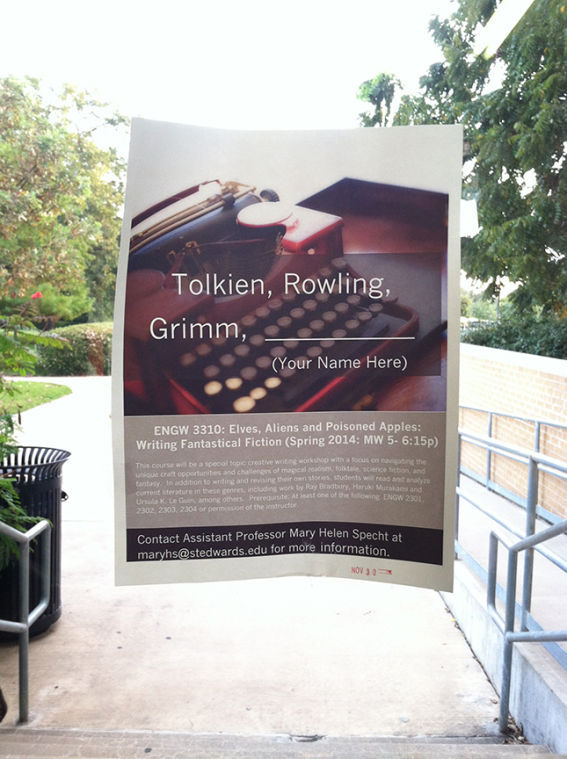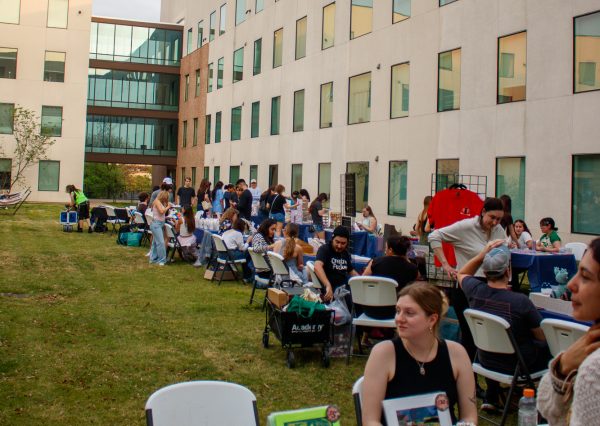New fantastical fiction workshop to be offered next semester
English Writing majors can partake in both non-fiction and fiction writing workshops. However, English Writing professor Mary Helen Specht is upping the ante for the Spring 2014 semester by offering a new workshop: Writing Fantastical Fiction. This class is the latest special topics course in the English writing & rhetoric department, but is open to all students.
The use of “fantastical” in the course name is purposefully broad. After noticing that students in her classes favored stories that encroached on fantasy, science fiction and magical realism, Specht found it necessary to offer a class that could accommodate all things extraordinary.
“I felt a need to create this class because there’s special things you have to do when you’re writing for a fantastical world that I don’t focus on in Fiction Writing,” Specht said.
The class will differ from her fiction workshops in that more attention will be paid to what Specht refers to as, “world building.”
World building is meant to solidfy abstract concepts and magical characters by supplying the reader with enough sensory detail to make the textures real. In fiction, more exercises center on craft.
“In fiction, if you write about a toaster I’m going to know exactly what you’re talking about. But in fantastical fiction, you have to assume the reader has no idea what you’re talking about,” Specht said.
Students can expect to study texts that exhibit multiple uses of fantastical elements. The class will explore everything from Tolkein’s classic world to the magical realism of Gabriel Garcia Marquez. Stephanie Meyer’s “Twilight” series, however, will be left out, Specht said.
“I’m not going to teach you how to write like Twilight in my classes,” Specht asserts. “Doesn’t mean that the introduction of a vampire in your writing will mean your work isn’t literary.”
While Specht is open to exploring various genres, she is careful to establish the lines of literary and not.
“There was a feeling that in those genres people exploit a lot of clichés that literary fiction doesn’t believe in,” Specht said.







